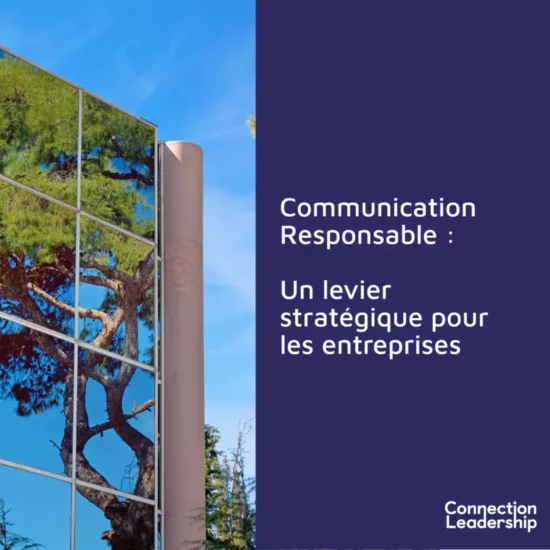
Responsible Communication: A Strategic Lever for Companies
In a world undergoing profound ecological and social change, companies need to fundamentally rethink their communications approach.
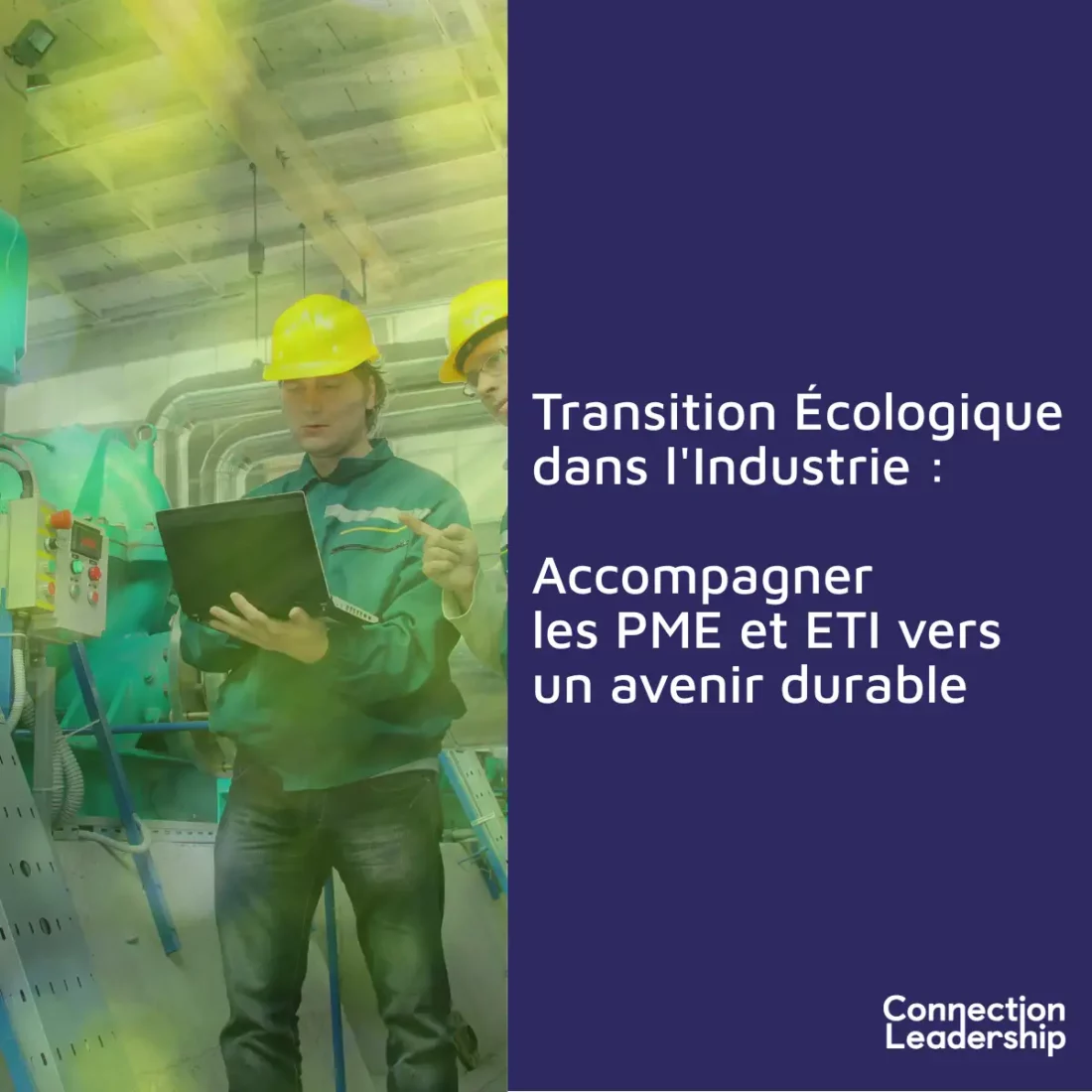
In a world where ecological transition is no longer an option but a necessity, SMEs and industrial ETIs find themselves at a crossroads. How to navigate this crucial change while ensuring growth and innovation? This question, at the heart of business leaders’ concerns, finds its answers in a structured and holistic approach to ecological transformation, for greater corporate sustainability.
The ecological crisis we are facing represents an existential problem for mankind. The scientific evidence is clear: over the last 150 years, the concentration of carbon dioxide has increased significantly, reaching levels not seen for millions of years. The planet has warmed by an average of 1.2 degrees, far exceeding the stable climatic equilibrium of the past 10,000 years. This balance had enabled the emergence of agriculture and all historical civilizations.
The ecological transition is not limited to climate change. It encompasses the loss of biodiversity we are currently experiencing with the 6th mass extinction, increasing water and resource shortages, and pollution in all its forms. This systemic polycrisis is characterized by the crossing of 6 of the 9 planetary limits identified by scientists. It calls for a response commensurate with the stakes, involving all economic players, including the industrial companies at the heart of our production system.
The ecological transition is an evolution towards a new economic and social model, a model of sustainable development that renews the way we consume, produce, work and live together.
This transformation is designed to meet the major environmental challenges of climate change, resource scarcity, biodiversity preservation and emerging health risks.

For industrial companies, the ecological transition involves tackling six main interconnected challenges. The decarbonization of activities requires a drastic reduction in greenhouse gas emissions, while resource optimization and circularity transform the approach to raw materials. Energy efficiency and transition are redefining energy consumption patterns, while preserving and optimizing the use of water is becoming crucial. Preserving ecosystems means paying particular attention to the quality of air, soil and biodiversity, while the circular economy and zero-waste objectives are transforming waste and effluent management.
Contrary to popular belief, companies’ primary motivation for the ecological transition is economic. External constraints are exerting increasing pressure, with the expectations of customers and consumers in both B2B and B2C, growing regulatory obligations, and the significant rise in energy and raw material costs.
At the same time, internal constraints are also driving this transformation: alignment with CSR strategy is becoming unavoidable, the expectations of employees and social partners are intensifying, and competitive positioning requires us to either get ahead or catch up.
The ecological transition represents a major economic opportunity, enabling market gains through differentiation, direct savings on operating costs, greater resilience in the face of crises, and enhanced attractiveness to talent. These tangible benefits demonstrate that investment in the ecological transition generates measurable and sustainable returns.
Mitigation involves reducing a company’s environmental impact through three main complementary levers.
Efficiency means improving energy yields, optimizing industrial processes and adopting more effective technologies. These measures enable us to do more with less.
Substitution involves making the energy transition from fossil fuels to renewable energies, changing industrial processes to less polluting alternatives, and adopting alternative materials with less impact. This approach fundamentally transforms production methods.
Sobriety aims to reduce consumption at source, optimize product catalogs to eliminate the least efficient references, and transform business models towards greater sustainability.
According to the Académie des Technologies, sobriety is essential in the short term, as technology alone will not be enough to significantly reduce our impact.
Adaptation aims to prepare the company for inevitable climate change. It involves diversifying suppliers to offset supply disruptions, adapting infrastructures to growing climate risks, strategically relocating sensitive activities, and strengthening business continuity plans. This proactive approach helps maintain operational performance in the face of environmental hazards.
The ecological transition is part of a cyclical process inspired by John Kotter’s 8 stages of change. This proven methodology starts by creating urgency through awareness-raising and training, then builds a coalition by mobilizing management and referents. The third step develops a clear vision by defining the raison d’être, followed by communicating this vision to ensure internal and external commitment. The empowerment of action mobilizes teams, while the generation of quick wins concretizes the first results. Gains are then consolidated by a systemic strategy, before anchoring new behaviors in a lasting cultural transformation.
Our webinar on the ecological transition for industrial SMEs and ETIs
The implementation process is divided into three distinct phases.
The creation of a network of transition referents, whether Green Teams or CSR Ambassadors, is essential to the success of the transformation. The commitment framework must clearly define the missions and resources allocated, with dedicated time formalized in hours per week or days per month, and explicit support from management.
Effective leadership is based on identifying motivated volunteers, creating a strong community spirit, empowering the group, and organizing regular highlights. Sustainability is ensured by valuing commitments, developing and renewing teams, and rigorously monitoring the implementation of proposed actions.
There are many players who can support you in your ecological transition. Public bodies offer valuable resources: ADEME with its ACT methodology, BPI France for financing and training, and the Chambers of Commerce and Industry for assessments and networking. Digital tools facilitate access to information, with the CSR Portal providing customized regulations by SIRET, and Mission Transition Écologique offering specialized support for small and medium-sized businesses.
Training programs are also expanding, notably the “Catalogue Clé en Main” developed by OPCO 2i and Connection Leadership, issue-based training covering energy, water, waste and biodiversity, and transition leadership programs.
The CSRD (Corporate Sustainability Reporting Directive) is gradually transforming the regulatory landscape. It has been applicable to companies with over 500 employees since 2024, and will be extended to companies with over 250 employees in 2025, then progressively to SMEs between 2026 and 2028. These European regulations will transform non-financial reporting and impact all companies, requiring advance preparation.
At Connection Leadership, we support the ecological transition as a holistic transformation combining three complementary dimensions. Our technical expertise encompasses diagnostics and impact measurement, customized sector strategies, and regulatory and standards monitoring. Our human support takes the form of coaching for management teams, employee training and cultural change management. Finally, our systemic vision integrates the transformation of business models, the integration of ESG issues, and the creation of sustainable value.
Our network of over 190 senior consultants brings you in-depth business expertise, proven transformation methods, and personalized support throughout France. This collaborative approach guarantees fine-tuning to the specific needs of each company and business sector.
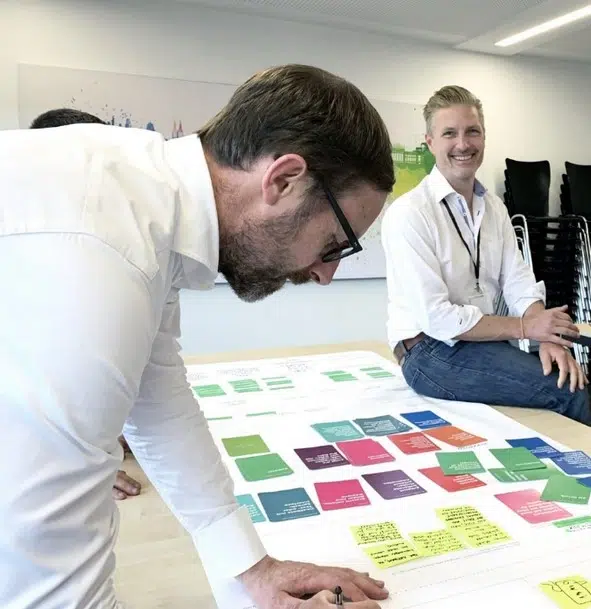
The ecological transition is no longer an option for industrial companies; it’s a strategic necessity that conditions their future survival and competitiveness. In the face of the climate and environmental emergency, every company has a role to play in this collective transformation. The solutions exist, the tools are available, and the support ecosystem is mobilized to sustain this evolution.
It’s no longer a question of whether you should get involved, but of how to do it effectively. Connection Leadership supports you in this crucial transformation, combining technical expertise and human support to make the ecological transition a real driver of performance and innovation.
To find out more about our ecological transition solutions, contact our experts.

In a world undergoing profound ecological and social change, companies need to fundamentally rethink their communications approach.

CSR is on everyone’s lips these days. Awareness of the ecological transition is growing, and a real awareness is emerging in many organizations. Yet, despite these advances, the real impact on operations is still too limited.
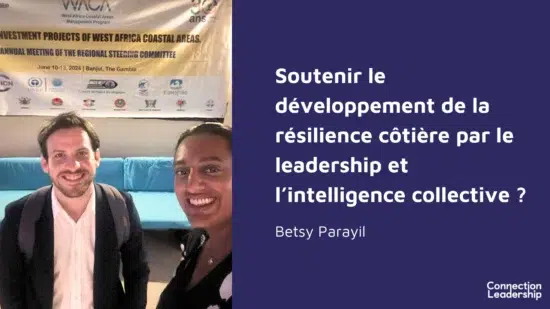
The Blue Economy is now recognized as a strategic lever for combining economic development, social inclusion and preservation of the marine environment. This model, which encompasses sectors ranging from fishing to marine renewable energy,…

During a training course on the subject of artificial intelligence, which I attended with my colleague Jean-Pierre Huchet, formerly owner of Renault’s data lake, as well as an international group from the business and technology sectors, I realized that the holistic consulting approach, which looks at both the human and
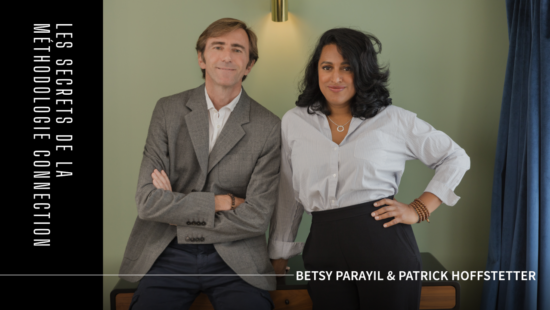
The inspiration for this article came from a recent testimonial following one of our “BOOST” seminars. A customer confided in me: “We’ve seen lots of coaches, but we’ve never had an experience like this before! At first, it may seem irrational to invest time and money in areas which, at

Social relations are a key element in the dynamics of any organization. However, they are often studied in terms of conflict, and seen as a source of inevitable tension.